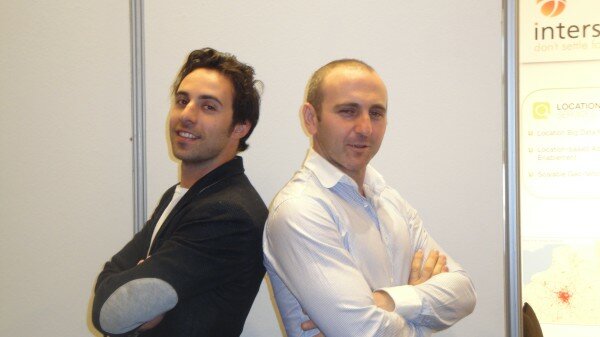
Marc Elias, founder of Seed Engine and Eric Edelstein, CEO of Zunguz. Image by HumanIPO.
Marc Elias, founder of Johannesburg-based startup accelerator Seed Engine, and Eric Edelstein, chief executive officer (CEO) of online payment startup Zunguz, spoke to HumanIPO about the support universities can offer by promoting a positive startup mentality.
HumanIPO: Do you think universities in South Africa do enough to equip students in becoming successful entrepreneurs?
Edelstein: The big challenge from a university perspective, especially an older university perspective, is actually to [decide whether] academic institutions [are there] to educate people or there to help startups to make a lot of money.
Elias: They (universities) are not taking ownership. They (entrepreneurs) have to do it alone.
Edelstein: Well, if they are not taking ownership, they are here to pay for the university, which Stanford does. Now the University of Cape Town (UCT) are properly following the Stanford model and so they actually got a top team of IP lawyers.
They’ve already funded five ventures from what I understand in the last few months. The more students that become part of the accelerator programme, the less students are actually going to university.
HumanIPO: Do you think universities can play a great role in the education of a community and should make degrees more practical, rather than just equipping students with book knowledge?
Elias: It comes down to what the objectives of a university are. Is it about helping entrepreneurs or educating and bettering the economy?
If it is about bettering the economy, [it requires] a flexible, lose sort of a course curriculum, but something that is driven more output focused. The output is not a degree, the output is a skill.
HumanIPO: Can academics play an important role by also launching projects with their skills and get more involved in the corporate world to teach according to experience, rather than solely knowledge?
Elias: The problem is they are not actually pushing startups. Staff members are literally told: Don’t get involved in the startup zone, rather go work for quick development houses.
Can we afford a corporate world? I don’t think we can, not if we really want to drive innovation.
So we want something to drive our startups…and build a safe ecosystem so that the ecosystem can actually foster the startup rather than saying it’s the ultimate risk when they do.
Then what we (startup accelerators) are doing becomes relevant, as well as all these micro systems, as well as the economic system.
How much talent is out there and how much ready talent is out there? What can we nurture and what is out there?
Edelstein: One thing I think parents need to teach their kids that they need to learn is programming.
If you go into computer science, you can land a corporate job, not only in South Africa but anywhere in the world. You can go live in Japan. Once you know how to programme, how to code, you can launch a startup on the side.
Getting a computer science degree, if you do want to study, is the most important thing. If you do computer science, you can start a startup, if you are finished you have something to fall back on.
You can always earn phenomenal money working in a corporate job, and programme on evenings and weekends.
Elias: The companies should drive that innovation. The status of a good university lies in the amount of the degrees…it is not based on how hard it is to get in there. That is the same thing when it comes to school.
You need to be able to do stuff on the side. It’s not going to happen at schools. It’s not going to happen at university. You have to do something on the side. The same way you have your extracurricular activities at school, you have your startup on the side or your idea.
Edelstein: First of all, you’ve got to have the passion for startups and secondary, you’ve got to have the skills to actually go and make it.
Elias: Is that passion nurtured or created? I think it can be nurtured.
Edelstein: Absolutely, but is it nurtured by the schools or by the parents?
Elias: The ecosystem is made up of all the stakeholders.


















